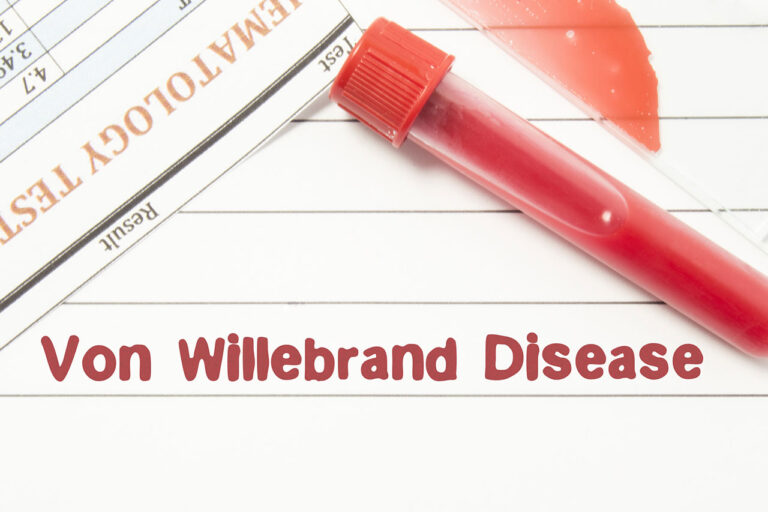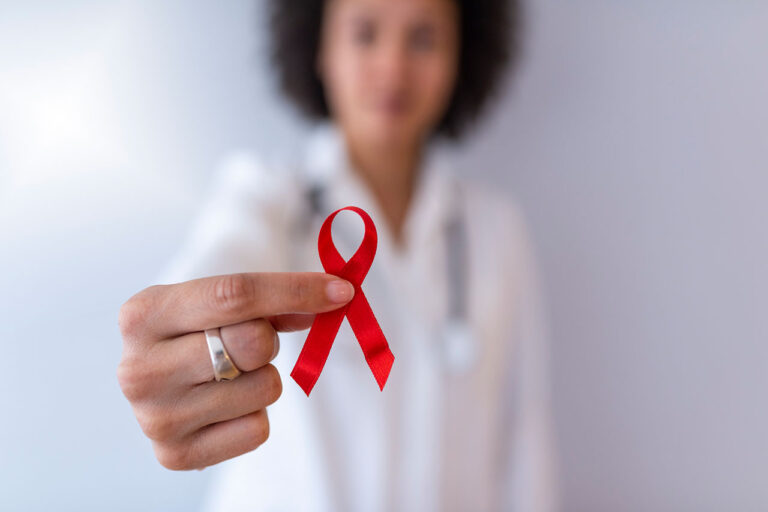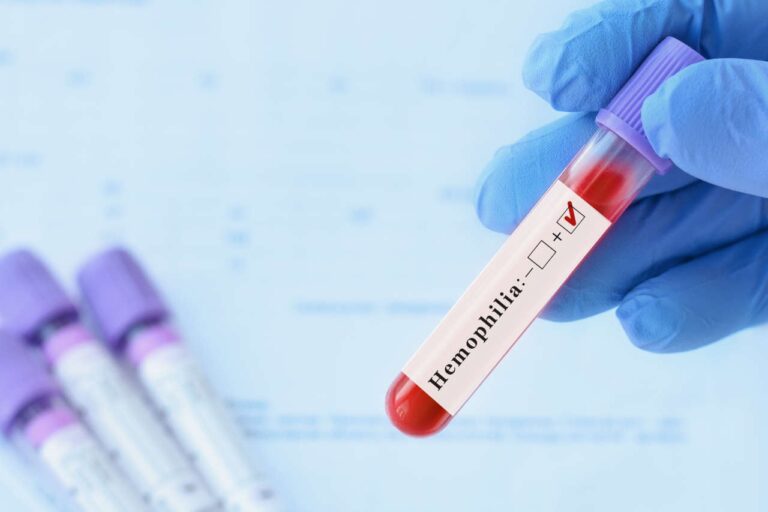
Biết về các yếu tố nguy cơ mắc bệnh máu khó đông có thể giúp giảm nguy cơ gặp biến chứng.
Nói chuyện với chuyên gia về hỗ trợ đồng thanh toán
Bệnh máu khó đông là gì?
Bệnh máu khó đông (Hemophilia) là một nhóm các rối loạn chảy máu di truyền. Bệnh xảy ra khi máu của bạn chứa ít hoặc không có các protein đông máu được gọi là yếu tố đông máu. Kết quả là máu không thể đông đúng cách, dẫn đến chảy máu quá nhiều.
Số lượng chính xác người Mỹ mắc bệnh máu khó đông vẫn chưa được xác định. Trung tâm Kiểm soát và Phòng ngừa Dịch bệnh (CDC) ước tính có 33.000 nam giới ở Hoa Kỳ mắc chứng rối loạn này. Gần 400 trẻ sơ sinh được chẩn đoán mắc bệnh máu khó đông A (một dạng bệnh máu khó đông) khi sinh ra mỗi năm [1].
Biến chứng của bệnh máu khó đông là gì?
- Chảy máu quá nhiều và kéo dài, ngay cả khi không có chấn thương hoặc chấn thương
- Chảy máu trong (chảy máu ở các cơ quan quan trọng như não có thể gây tử vong)
- Chảy máu vào khớp (có thể gây đau khớp mãn tính và sưng)
Các loại bệnh máu khó đông
Có nhiều loại bệnh máu khó đông khác nhau được mô tả trong các tài liệu y khoa. Trong số đó, hai loại phổ biến nhất là:
- Bệnh Hemophilia A (Bệnh Hemophilia cổ điển):Những người mắc bệnh máu khó đông A có rất ít hoặc không có yếu tố đông máu VIII trong máu.
- Bệnh Hemophilia B (Bệnh Giáng sinh):Những người mắc bệnh máu khó đông B có rất ít hoặc không có yếu tố đông máu IX trong máu.
Một hình thức hiếm, bệnh máu khó đông C, có thể xảy ra do thiếu yếu tố đông máu XI.
Các yếu tố nguy cơ mắc bệnh máu khó đông: 3 điều bạn nên biết
1. Di truyền đóng vai trò quan trọng trong cả ba loại bệnh máu khó đông
Trong hơn 66% trong số tất cả các trường hợp mắc bệnh máu khó đông, có tiền sử gia đình mắc bệnh này [1]. Do đó, việc có một hoặc nhiều thành viên trong gia đình mắc bệnh máu khó đông là một yếu tố nguy cơ chính.
Bệnh máu khó đông xảy ra khi bạn có một gen bị lỗi trên nhiễm sắc thể X.
Đàn ông mang gen lỗi (và bệnh máu khó đông) sẽ truyền gen này cho con gái. Còn được gọi là "người mang gen bệnh", con gái có thể mắc bệnh máu khó đông hoặc không. Tuy nhiên, con trai không thừa hưởng gen lỗi.
Nếu phụ nữ mang gen lỗi, có khả năng 50% [2]:
- Con trai sẽ mắc bệnh máu khó đông
- Con gái sẽ là người mang thai hộ
2. Hầu hết những người mắc bệnh máu khó đông là nam giới
Đàn ông chỉ có một nhiễm sắc thể X. Vì vậy, bất kỳ gen khiếm khuyết nào trên nhiễm sắc thể X đều có nghĩa là họ sẽ mắc bệnh máu khó đông. Điều dễ hiểu là phần lớn bệnh nhân mắc bệnh máu khó đông là nam giới.
Mặt khác, phụ nữ có hai bản sao của nhiễm sắc thể X. Vì vậy, ngay cả khi họ có khiếm khuyết di truyền trên một nhiễm sắc thể, cơ thể họ vẫn có thể sản xuất đủ yếu tố đông máu theo hướng dẫn từ gen khỏe mạnh trên nhiễm sắc thể còn lại.
3. Trong khoảng một phần ba trường hợp, không có tiền sử gia đình

Bệnh máu khó đông Hầu như luôn di truyền. Tuy nhiên, một số người có thể mắc chứng rối loạn này mặc dù họ không có tiền sử gia đình mắc bệnh. Loại này được gọi là bệnh máu khó đông mắc phải.
Đây là một chứng rối loạn hiếm gặp ảnh hưởng đến gần 1,5 trong mỗi triệu người [3]. Nguy cơ tương tự ở cả nam và nữ. Không xác định được nguyên nhân trong khoảng 50% trường hợp. Ở những trường hợp khác, các yếu tố nguy cơ mắc bệnh hemophilia bao gồm:
- Tình trạng tự miễn dịch
- Bệnh ung thư
- Viêm gan B và C
- Bệnh ghép chống vật chủ (GvHD)
- Thuốc men
- Bệnh ngoài da
Nhận hỗ trợ tài chính
Những yếu tố nguy cơ gây bệnh von Willebrand là gì?
Những người có bệnh von Willebrand (VWD) thiếu một loại protein đông máu gọi là yếu tố von Willebrand (VWF). Đây là một rối loạn máu di truyền phổ biến ảnh hưởng đến 1% của người Mỹ [4].
Di truyền, nghĩa là có người trong gia đình mắc chứng rối loạn này, là yếu tố nguy cơ phổ biến nhất.
Những yếu tố nguy cơ gây rối loạn chảy máu là gì?
Các yếu tố sau đây có thể khiến bạn dễ mắc chứng rối loạn chảy máu hơn:
Tuổi
Rối loạn chảy máu có thể ảnh hưởng đến mọi lứa tuổi. Tuy nhiên, trẻ sơ sinh có nguy cơ cao bị chảy máu do thiếu vitamin K. Tương tự, người lớn tuổi có nguy cơ mắc bệnh máu khó đông mắc phải cao hơn.
Tiền sử gia đình
Bạn có nhiều khả năng mắc chứng rối loạn chảy máu hơn nếu một hoặc cả hai cha mẹ bạn mắc chứng rối loạn này.
Giới tính
Bệnh máu khó đông phổ biến hơn nhiều ở nam giới. Mặt khác, nguy cơ mắc một số rối loạn chảy máu nhất định, chẳng hạn như bệnh máu khó đông mắc phải, ở nam giới và nữ giới là tương đương nhau.
TÀI LIỆU THAM KHẢO:
- “Dữ liệu và Thống kê | Bệnh máu khó đông | NCBDDD | CDC.” Trung tâm Kiểm soát và Phòng ngừa Dịch bệnh, ngày 1 tháng 8 năm 2022, www.cdc.gov/ncbddd/hemophilia/data.html#.
- “Bệnh máu khó đông.” Kênh Better Health, www.betterhealth.vic.gov.au/health/conditionsandtreatments/haemophilia.
- Haider MZ, Anwer F. Mắc bệnh máu khó đông. [Cập nhật ngày 13 tháng 12 năm 2022]. Trong: StatPearls [Internet]. Đảo Giấu Vàng (FL): Nhà xuất bản StatPearls; Tháng 1 năm 2024. Có thể tìm đọc tại: https://www.ncbi.nlm.nih.gov/books/NBK560494/
- “Dữ liệu và số liệu thống kê về bệnh Von Willebrand | CDC.” Trung tâm Kiểm soát và Phòng ngừa Dịch bệnh, ngày 26 tháng 10 năm 2020, www.cdc.gov/ncbddd/vwd/data.html.













